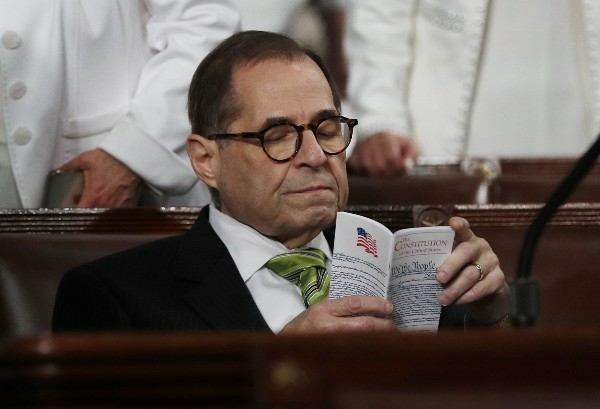Democrats and a few Republicans have given in and admitted their views on cannabis must change. A bill passed through the House of Representatives on December 4, 2020. This new act proposes to decriminalize pot which was classified as a schedule one narcotic fifty years ago. A war on drugs failed but was allegedly not lost given this new plan will simply lead to corporatization, disguising their tragic wolf in greener skin.
The Marijuana Opportunity Reinvestment and Expungement MORE Act, sponsored by Representative Jerry Nadler (D-N.Y.), passed with a vote of 224 to 164. Legalization talks come and go, but this is the first time decriminalization passed through Congress. Likely, the House is as far as this legislation will go once it faces its doom, the Republican-led Senate.

Expunged blessings
In the event the MORE Act passes, cannabis prisoners will be granted a blessing since the new bill will destroy minor pot offenses. Many freedoms will be granted under decriminalization. A warning from a neighbor, though. Canada is an example of how legalization can pose drastically different results once political plans turn to reality. Illicit dispensaries that ran freely in Canada for years were shuttered and the entire weed market was quickly wrapped into a regulated mess.
Thankfully, the House’s new plan laminates expungement, not simple pardons. In opposition to freedom, Rep. Nadler stated that it would be reckless if they do not begin limiting cannabis’s potency. In contrast, a Canadian judge ruled that their Cannabis Act violated a patient’s Charter Rights under Section 7 by shunting THC potency in capsules down to ten milligrams per package.
Collateral damage from a Drug War, Remediated
Tax from legal cannabis sales will be directed towards and invested in remediating society after the destruction left behind by the War on Drugs. The consumers will pay for any damages their forebears suffered at the hands of former enforcement agencies. Should blame for those atrocities rather be handed to the enforcers and regulators, not individual consumers?

Purpose of MORE Act
MORE act is intended to align the individual people; to eliminate systemic racism amongst cannabis consumers. According to an ACLU report, Black Americans were 3.7 times as likely to be arrested for cannabis offenses. Rep. Hakeem Jefferies (D-N.Y.) stated that minorities account for 80% of those arrests.
Five votes of support for decriminalization surprisingly came from Republicans, with six Democrats objecting to the new bill. A deeply red opposition presented challenges to decriminalization and corporatization of cannabis. A third-party citation battle ensued in the House of Representatives over a plant that is riddled with linguistic dichotomies, pharmacological polarities, and a history of negative legal influence.
Reefer madness research back on the radar with MORE act
Republicans back stepped on progress and rebirthed the Nixonian ideology of reefer madness. Purports about the gate-way drug theory touted by Rep. Greg Murphy (R-N.C.) likely rang with hysterical tones against studies provided by his Democratic opposition. Despite pure intentions worn on Democratic sleeves when presenting the MORE act, they intend for research to focus on the dangers of cannabis. To be frank, that analytical journey will be as shallow as their modesty.
Decriminalization works like a mask to cover-up hidden biases. The House claims they possess positive intentions, especially with a focus on correcting systemic racism. In reality, they are locked onto a warpath to control and corporatize cannabis consumption.

Decriminalization’s other face
Rep. Earl Blumenauer, (D-Ore.), stated that “We’re here because Congress has failed to deal with a disastrous war on drugs, and do its part for the over 50 million regular marijuana users in every one of your districts.”
A question arises with President-Elect Joe Biden’s idea of treatment programs, at least if they do plan to highlight the few dangers behind cannabis use. Instead of pushing the users away from cannabis, are they planning on luring them in? What if controlling the medicinal plant that can safely ameliorate addiction to opioids and cocaine, reducing harm, does not go to plan?
Biden, a former supporter of small-time marijuana offenses, has expressed support for medical marijuana and expungement. However, he will leave recreational use up to individual state decisions. His running mate, Kamala Harris, formerly co-sponsored the MORE Act with Rep. Nadler in 2019. So, could the next Congress stage sweep marijuana reform policies? In reality, they are chasing a $17B cherry sitting on top of the industry. And that treasure, referenced by Rep. Blumenauer, will only be placed in their hand after the corporatization of America’s cannabis market.
How do you feel about the MORE act’s intentions? Let us know in the comments below.



